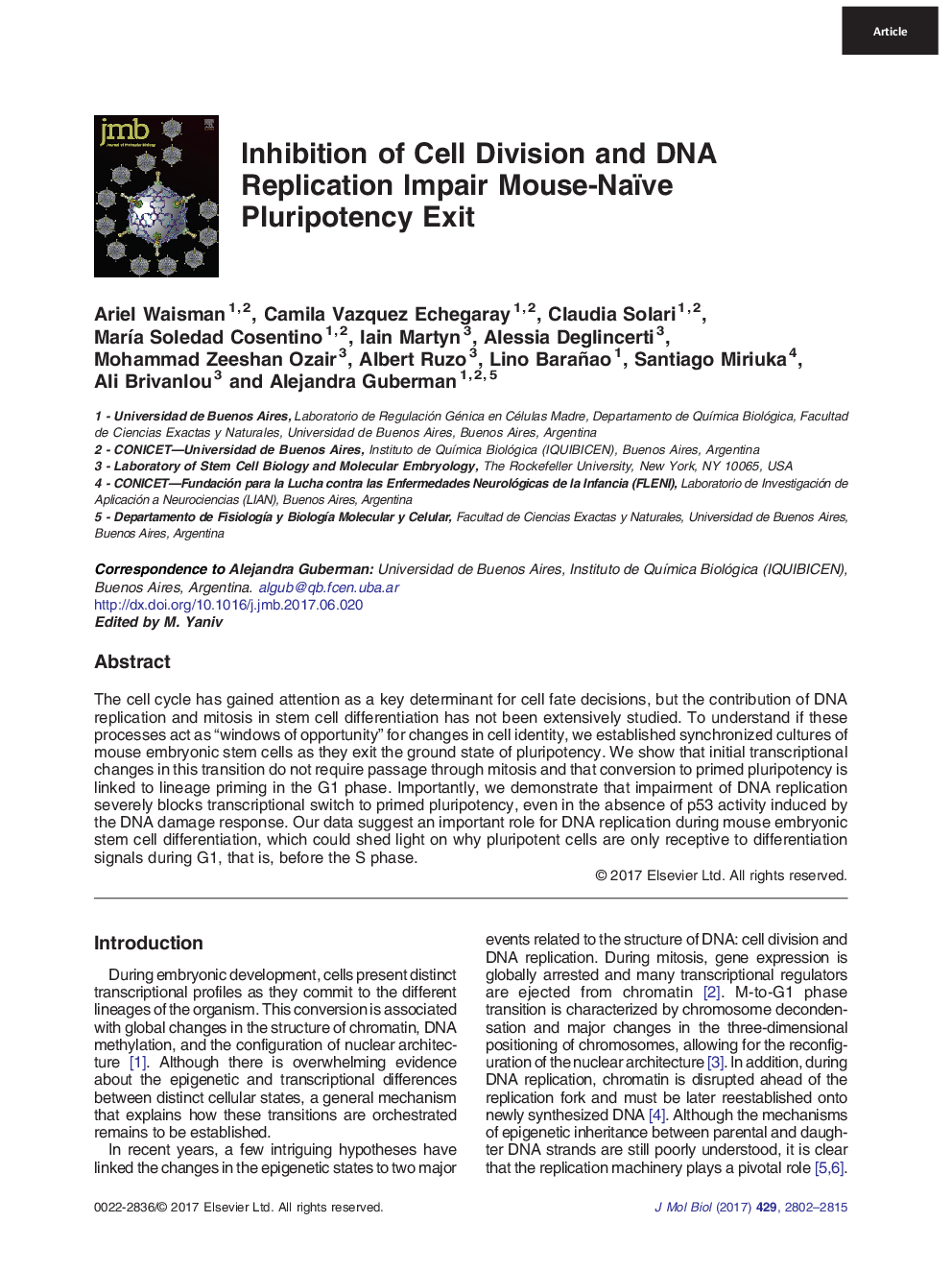| کد مقاله | کد نشریه | سال انتشار | مقاله انگلیسی | نسخه تمام متن |
|---|---|---|---|---|
| 5533149 | 1402103 | 2017 | 14 صفحه PDF | دانلود رایگان |

- Transcriptional programs change drastically during stem cell differentiation.
- Cell-cycle events were proposed to act as instances of global epigenetic remodeling.
- Mitosis may enhance, but it is not fundamental for transcriptional change.
- Transition from naïve to primed pluripotency is coupled to lineage priming in G1.
- Inhibition of DNA replication impairs naïve pluripotency exit.
The cell cycle has gained attention as a key determinant for cell fate decisions, but the contribution of DNA replication and mitosis in stem cell differentiation has not been extensively studied. To understand if these processes act as “windows of opportunity” for changes in cell identity, we established synchronized cultures of mouse embryonic stem cells as they exit the ground state of pluripotency. We show that initial transcriptional changes in this transition do not require passage through mitosis and that conversion to primed pluripotency is linked to lineage priming in the G1 phase. Importantly, we demonstrate that impairment of DNA replication severely blocks transcriptional switch to primed pluripotency, even in the absence of p53 activity induced by the DNA damage response. Our data suggest an important role for DNA replication during mouse embryonic stem cell differentiation, which could shed light on why pluripotent cells are only receptive to differentiation signals during G1, that is, before the S phase.
267
Journal: Journal of Molecular Biology - Volume 429, Issue 18, 1 September 2017, Pages 2802-2815